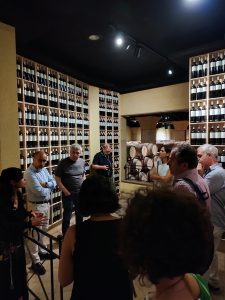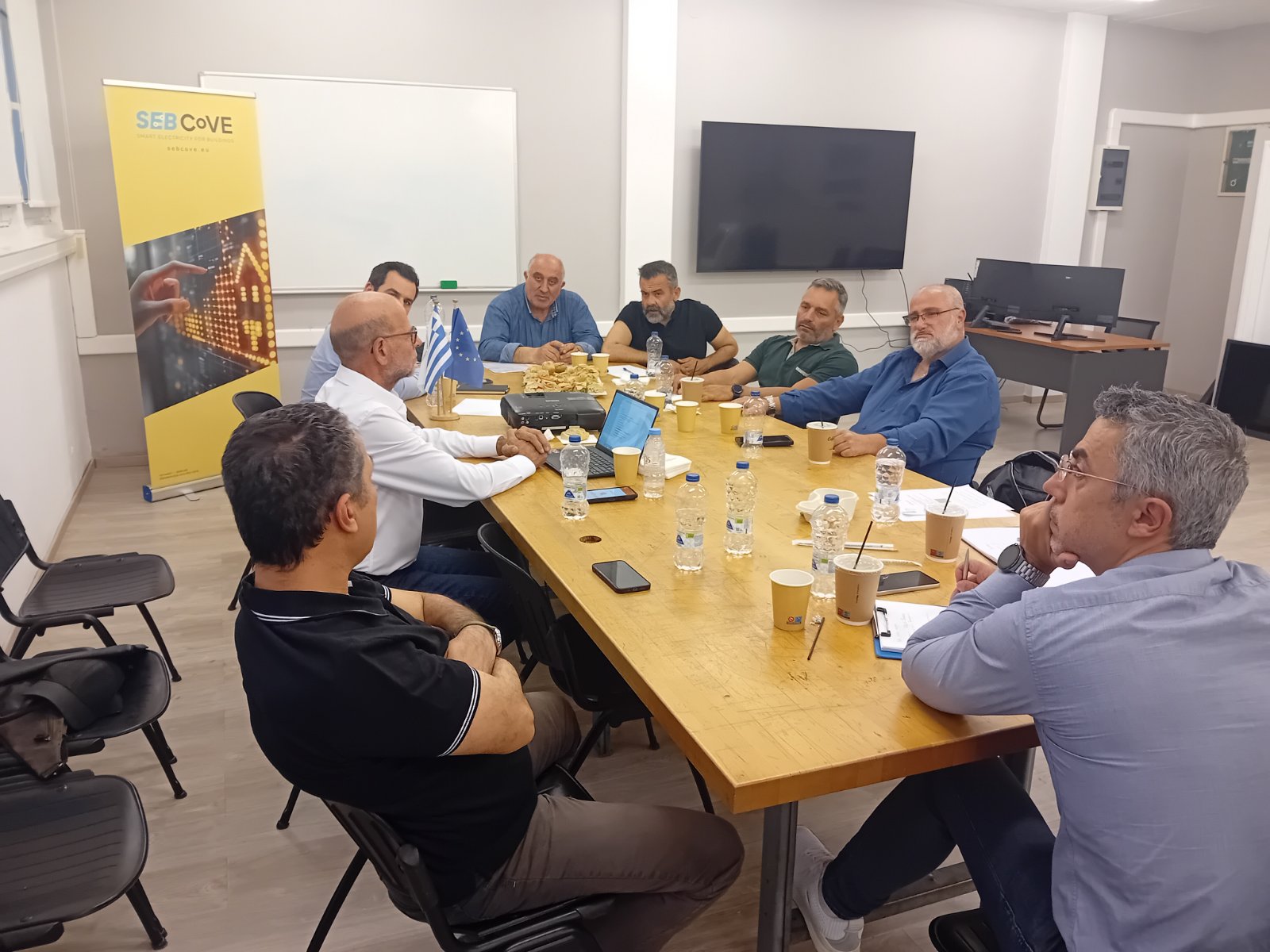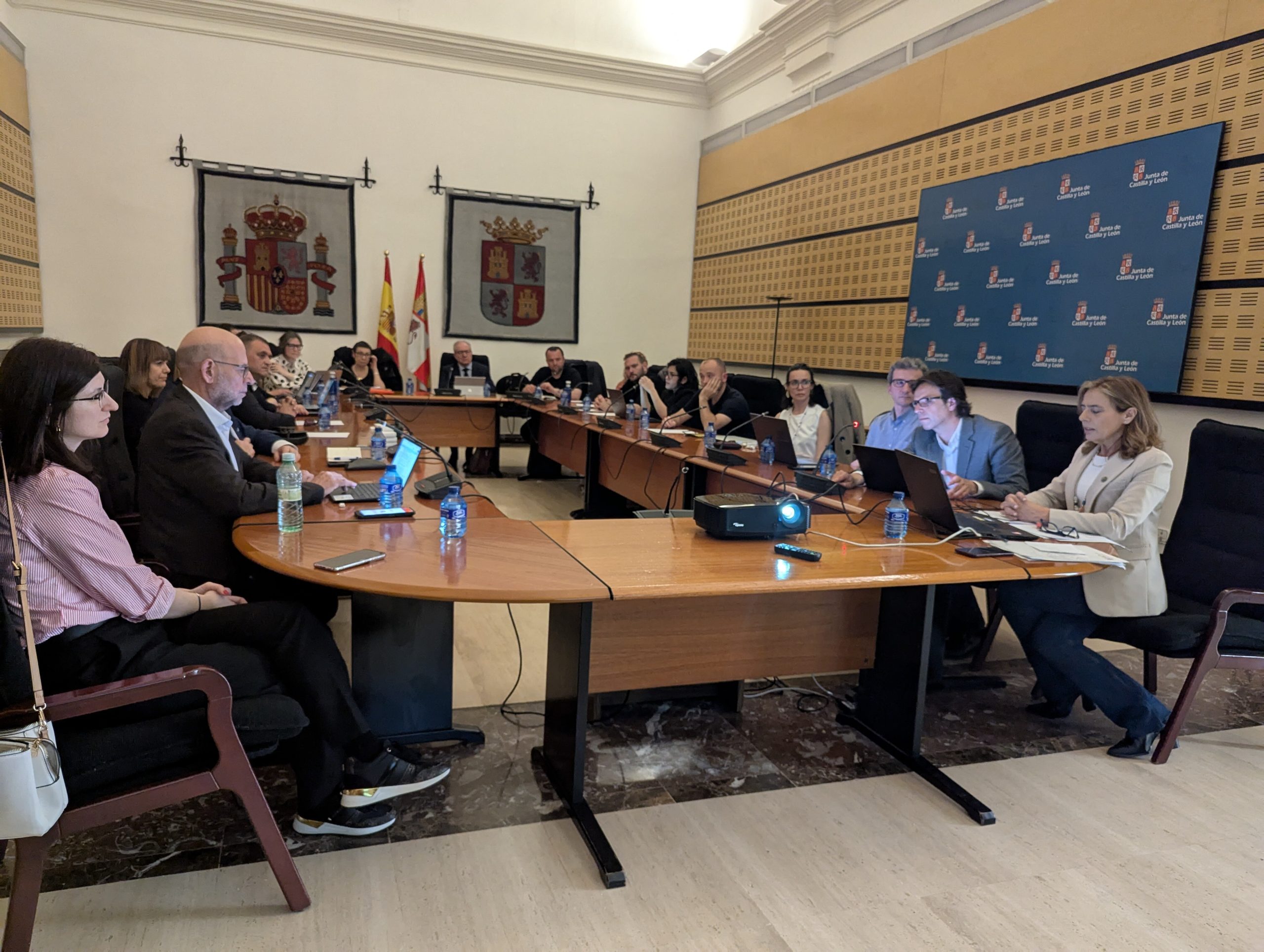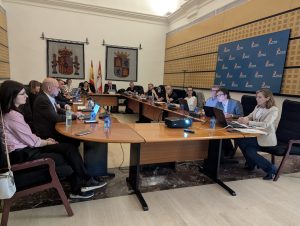In a major step toward transforming vocational education in the energy and building sectors, the SEBCoVE project has officially launched the first generation of Cost-Sharing Lab Networks (CSLNs) across Europe. These innovative networks enable training centres, universities, and industry partners to share high-value laboratory equipment and digital tools, dramatically expanding access to cutting-edge learning environments in the Smart Electricity for Buildings (SEB) sector.
According to the Development of a Cost-Sharing Lab Network (CSLN) report, CSLNs have now been established across five regions: Crete (Greece), Lombardy and Veneto (Italy), the Basque Country (Spain), and two regional clusters in North Macedonia. Together, they form the backbone of a new European infrastructure for vocational excellence—one built on collaboration, sustainability, and shared investment.
A New Model for Vocational Excellence
The CSLN model tackles a long-standing barrier in VET systems: the high cost of acquiring and maintaining advanced laboratory equipment. Through a shared-use mechanism, VET providers, universities, and enterprises pool their resources, giving learners and professionals access to ultramodern facilities that would otherwise be financially out of reach.
The report highlights that CSLNs help to:
- Reduce training and equipment costs, avoiding duplicated investments.
- Increase access to modern technologies and experimental facilities.
- Strengthen cooperation between VET, industry, and research through regional Knowledge Triangles.
- Support the delivery and certification of SEBCoVE’s modular curricula and micro-credentials.
This structure not only enhances technical training, but also embeds innovation within regional skills ecosystems—ensuring long-term impact.
Four-Phase Development: From Vision to Functioning Network
SEBCoVE has implemented a rigorous, four-phase methodology to design, establish, and monitor the CSLNs :
- Preparation – Mapping regional laboratories, identifying equipment gaps, and engaging Knowledge Triangle partners.
- Network Design – Creating governance structures, cost-sharing models, legal frameworks, and regional MoUs.
- Implementation – Setting up operational CSLNs, testing booking and cost-sharing systems, and training staff.
- Monitoring & Evaluation – Using EQAVET-based mechanisms to ensure quality, sustainability, and continuous improvement.
This replicable framework allows each region to adapt the model to its local Smart Specialisation priorities while maintaining consistency across the consortium.
SEBLaN in Crete: The First Operational CSLN
Crete stands as a European pioneer with the establishment of SEBLaN (Smart Electricity for Buildings Laboratory Network), the first fully operational CSLN in the SEBCoVE consortium.
SEBLaN unites six regional stakeholders—including the Hellenic Mediterranean University (HMU), the European Center in Training for Employment (ECTE), the Association of Electricians of Heraklion, and multiple vocational laboratory centres—to jointly manage and open their facilities for shared SEB training activities. TÜV AUSTRIA Hellas, as a key partner in the SEBCoVE project, actively supports the development of quality assurance frameworks and certification pathways for SEB-related skills, ensuring alignment with European standards. Additionally, the Greek cluster in Crete plays a strategic role in fostering collaboration between local industry, vocational education providers, and international partners, strengthening the region’s position as a hub for smart building technologies.
During its development, partners:
- Mapped laboratory infrastructures across Heraklion, Rethymno, and Lassithi.
- Completed shared equipment inventories.
- Defined a governance model led by the Lab Centre for Vocational Schools of Heraklion.
- Adopted a cost-sharing system combining in-kind contributions, proportional maintenance costs, and shared access rules.
SEBLaN now serves as a demonstration model for Europe, already supporting coordinated training sessions, pilot activities, and the implementation of micro-credentials.
Italy, Spain, and North Macedonia Join the Network
The CSLN model has expanded rapidly across other SEBCoVE regions:
Italy – A Mature, Multi-Regional Network
Italy’s network spans Veneto, Lombardy, Friuli Venezia Giulia, and Piemonte, building on an already well-developed tradition of shared laboratory services. Coordinated by ENAIP NET and Comonext, the Italian CSLN integrates seamlessly into regional smart specialisation strategies, supporting training in automation, renewable energy, and building electrification.
Basque Country – Innovation-Driven Collaboration
Coordinated by ZUBIGUNE Foundation and CONAIF, the Basque CSLN connects VET centres, installers’ associations, and research labs. The network focuses strongly on smart grids, digital automation, and renewable energy integration, with formalization expected in the upcoming project semester.
North Macedonia – A National Cluster Model
North Macedonia introduces a unique configuration: two regional CSLNs (South-East and Skopje) operating under a National Coordination Node. This national-level governance harmonises procedures, coordinates training schedules, and enables joint procurement, creating a cohesive national ecosystem that can serve as a model for future SEBCoVE countries.
A Foundation for Europe’s Green and Digital Transition
The deployment of CSLNs across Europe is already demonstrating substantial impact:
- Improved access to high-quality infrastructure for learners, apprentices, and professionals.
- Stronger collaboration between VET institutions, industry partners, and research centers.
- Reduced operational and investment costs for training providers.
- Stronger alignment with regional innovation priorities and Smart Specialisation Strategies.
- Long-term sustainability, as networks remain operational beyond the project’s lifetime.
By pioneering this collaborative infrastructure model, SEBCoVE has positioned Europe at the forefront of cost-effective, scalable, and innovation-driven vocational education for the Smart Electricity for Buildings sector.
A Replicable Model for Europe’s Centres of Vocational Excellence
As the energy sector undergoes rapid transformation, the SEBCoVE CSLN model offers a blueprint for future CoVE initiatives: a network that is technologically advanced, financially sustainable, and deeply embedded in regional ecosystems of innovation.
The successful operation of SEBLaN in Crete and the coordinated emergence of network nodes in Italy, Spain, and North Macedonia confirm that shared infrastructure is a viable and powerful strategy for elevating vocational education across Europe.

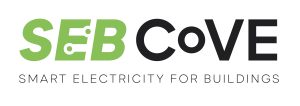
project number: 101144027
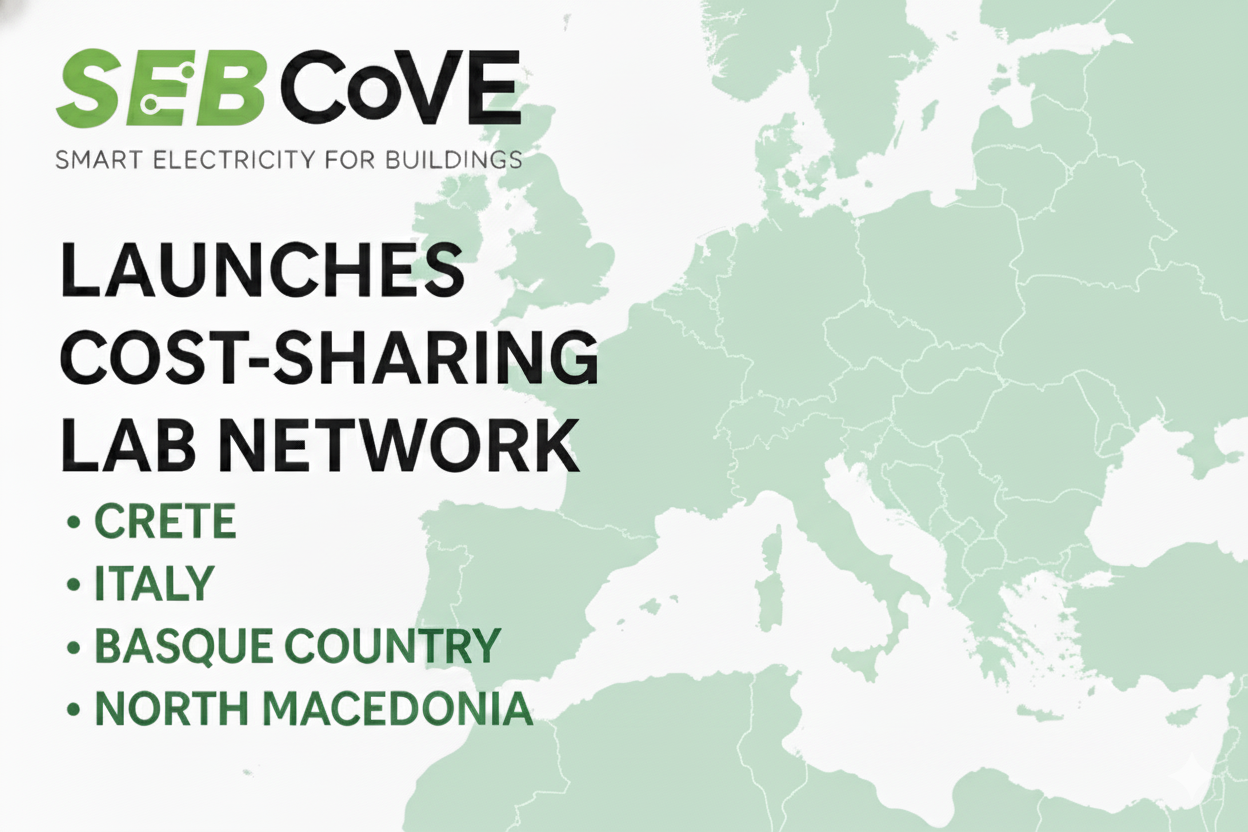









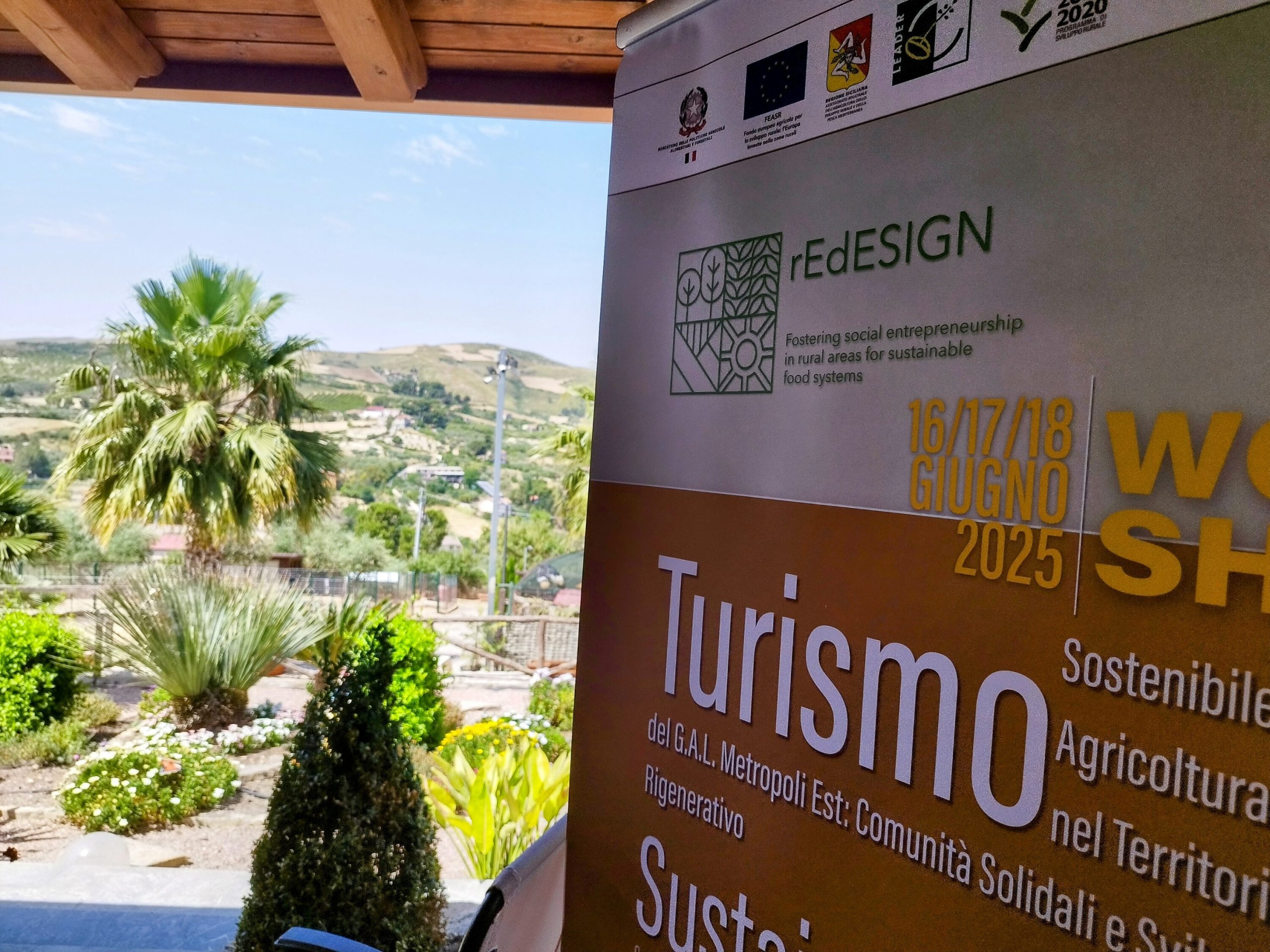
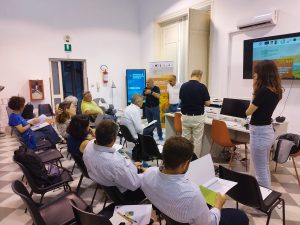 The event was hosted by
The event was hosted by 